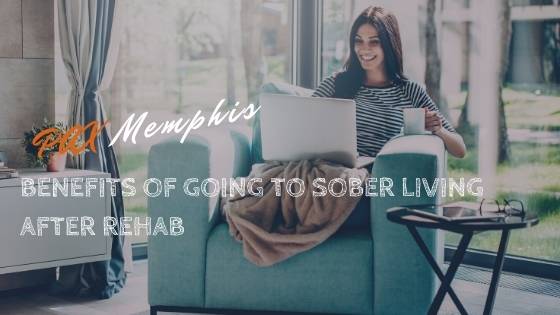If you’re getting ready to leave an addiction treatment facility, you may be wondering whether or not sober living is right for you. Also referred to as halfway houses, sober living homes provide safe and structured living environments for people in early recovery. Between helping you stay accountable and easing the transition out of rehab, there are many benefits of sober living after rehab.
Even though being released from treatment is exciting, it can also be nerve-wracking. And, if you don’t take all of the necessary steps to stay sober, you could easily jeopardize your recovery. Sober living homes in Memphis can help you stay on the right track.
What is Sober Living?
Sober living homes are drug- and alcohol-free residences that are reserved for people who are in early recovery. These homes may be privately owned or operated within an addiction treatment program. Regardless of the type of home, sober living can be a great asset for people in early recovery to take advantage of.
Although all sober homes in Memphis are different, they all operate on a similar basis. While staying in a sober home, you will share your bedroom with a roommate, be expected to take random drug tests, report to your house manager regularly, and benefit from the fellowship and support that sober living homes have to offer.
Benefits of Sober Living in Memphis
Sober living homes are known to help reduce relapse, reinforce healthy behaviors, and assist people in all phases of early recovery. In addition to helping you stay sober and on the right track, there are many benefits of going to sober living after rehab.
Supportive Living Environment
One major obstacle to long-term sobriety is the lack of a stable, alcohol and drug-free living environment. This is because a home that is toxic, unstable, or addicted can easily hurt one’s recovery – even the most motivated individuals.[1] Fortunately, sober living homes exist to help eliminate this obstacle.
Not everyone has a sober and healthy home to return to after rehab. Some have families who use drugs and alcohol and others have been evicted from their homes. Sober homes require all housemates to stay drug- and alcohol-free, attend therapy, and be working towards becoming productive members of society.
Whether it’s early in the morning or late at night, you can rest assured that you’ll have the support you need right in your home.
Peer Support and Accountability
Peer support is another important aspect of recovery. Addiction is often said to be a disease of isolation, and isolation is said to be a warning sign of relapse. Living in a home with other people in sobriety means you are surrounded by people who have a common goal: to stay sober.
When you surround yourself with positive, sober, and supportive influences, you will feel more motivated to participate in your recovery and stay accountable. If you miss a meeting or don’t visit your sponsor, your roommates will know and help you get back on track. If you need support, your roommates will be there to help you get through your difficulties.
Assist in the Transition Out of Rehab
Leaving rehab isn’t always easy. During rehab, you have constant supervision, support, and counseling at your fingertips. When you leave, you could feel overwhelmed, anxious, or even scared. You may also face relapse triggers that make you want to drink or use drugs.
Sober living homes serve as a way to bridge the gap from inpatient care to the real world. It isn’t easy to adjust from living in such a structured environment to one with no structure at all. Fortunately, sober homes serve as a middle-ground to help ease the transition out of rehab.
A Continuum of Care
Relapse rates among drug addicts and alcoholics fall anywhere from 40-60%.[2] This is because addiction is a chronic and relapsing disease. However, that doesn’t mean there aren’t ways to prevent relapse.
One of the most effective ways to prevent relapse is to participate in a full continuum of care. A continuum of care is an approach that allows patients to transition to a lower level of care as they progress through the different stages of treatment.
Sober living is thought to be the last level of care and is often combined with outpatient treatment. While sober homes do not provide counseling or medical care, many people find them to be a helpful tool in recovery.
Find a Memphis Sober Living Home Today
Before you complete an addiction treatment program, your substance abuse counselor should discuss your aftercare options with you. Among these options may lie the choice to go to sober living. The addiction experts at PAX Memphis suggest you take advantage of the benefits of going to sober living because it can greatly support your recovery.
Whether you’re not sure if sober living is right for you or you need help getting started on your recovery, PAX Memphis is here to help. Call now to get started.
References:
Medically Reviewed: September 25, 2019

All of the information on this page has been reviewed and verified by a certified addiction professional.










